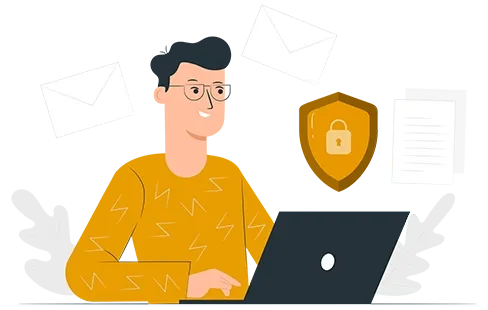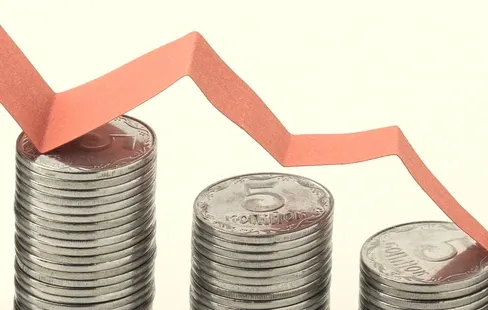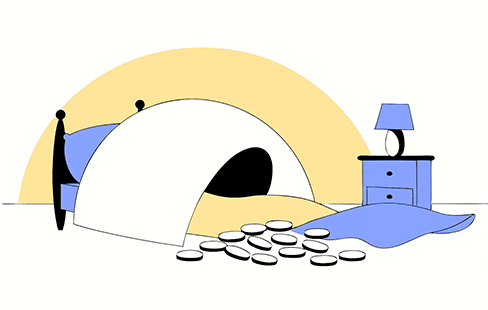Contents.
What is credit history and why is it important?
A credit history is a record of all your loans, credit cards, and payments. Banks refer to it to assess whether you are a conscientious borrower. If you have ever taken out an installment plan for a phone or a cash loan, information about the timeliness of your payments has been sent to the credit bureau. Accordingly, a good credit history increases your chances of getting a new loan on favorable terms, while a bad one can lead to rejection. Therefore, it is worth checking your history at least once a year, even if you are not planning to take out a loan right now.
Where is your credit history stored?
There are several credit bureaus (CBs) operating in Ukraine. The largest ones are the Ukrainian Credit Bureau (UCB) and the First All-Ukrainian Credit Bureau. These organizations store data about your loans. Banks and financial companies send them information about loans issued and your payments. When you apply for a new loan, the bank requests your history from these bureaus.Important: your consent to data processing when applying for a loan means that the data will be sent to the bureau.
Every person has the right to receive their credit history free of charge once a year. Here's how to exercise this right online.
Ways to check your credit history for free
- Through the UBCI website. The easiest way is to use the service of the largest bureau. Go to the official website of the Ukrainian Bureau of Credit Histories. Register your personal account—you will need to enter your passport details, code, and you may need BankID or a digital signature to confirm your identity. After logging in, you can order your “Credit Report.” The first request per year is free. The report will be generated online in a few minutes. You will see a list of all your loans, their status (closed/open), and your credit score (points).
- Through a mobile bank. Some banks allow you to view your credit history in their apps. For example, if you are a PrivatBank customer, their app has a credit rating check feature (integrated with UBCI). At the time of publication, GlobusPlus also plans to implement this feature, which will make checking even more convenient — right on your smartphone.
Where can I check my credit history?
- On the official website ubki.ua, in the section For Individuals – Credit History;
- in the mobile application “Credit History” for iOS and Android;
- in the chatbot “UBKI Credit History” in Viber and Telegram;
- in the chatbot “Monitorno” in Viber and Telegram;
- by mail, by sending a corresponding application to the UBCI mailing address;
- in Privat24 internet banking, in the section “My Accounts – Credit Rating”;
- in the Privat24 mobile app, in the “Menu – Credit Rating” section;
- on the City24 website in the “Banks and Financial Services – UBCI – Credit History (UBCI)” section;
- at City24 self-service terminals.
Official request once a year. By law, you can contact any bureau in writing or electronically and receive a report free of charge once every 12 months. This is a more bureaucratic method: you need to fill out an application and possibly send scans of documents. But if you use the UBCI online account, you can exercise this right in just a few clicks.
How to read a credit report and what to do with the information?
So, you have received your credit report. The first page usually shows your credit score—a numerical indicator that reflects your reliability. The higher it is (maximum around 900-1000 points in some systems), the better. Next is a detailed history: active loans, credit card limits, closed loans over the past few years, and whether there have been any late payments.
Check carefully: are there any errors? Sometimes the report may show a loan that you did not take out (there may be confusion or fraud). If you find an unfamiliar loan, immediately contact the bureau with an appeal. Also, check that all closed loans are marked as closed.
If you have had late payments, assess how long ago they were and how long they lasted. A small delay in payment three years ago is not critical, but regular late payments are a sign that you need to work on your payment discipline.
Tips for improving your credit history for the future
- Pay on time. The golden rule is to make minimum payments on credit cards and loans without delay. Set up reminders or automatic payments so you don't miss the date.
- Don't take out too many loans at once. Keep your debt-to-income ratio reasonable. Banks view it negatively if you already have five active loans.
- Check your credit history every year. This will allow you to spot problems before they prevent you from getting a loan.
- Use banking products responsibly. For example, if you have a credit card, don't exceed your limit, take advantage of the grace period, and don't allow yourself to fall behind on payments.
Regularly checking your credit history is like a preventive checkup of your financial health. It's quick, easy, and free. Knowing your credit rating will give you more confidence when applying for a new loan. If you find any errors, you have the right to correct them. Don't delay: check your credit history today to ensure your financial future is predictable.






